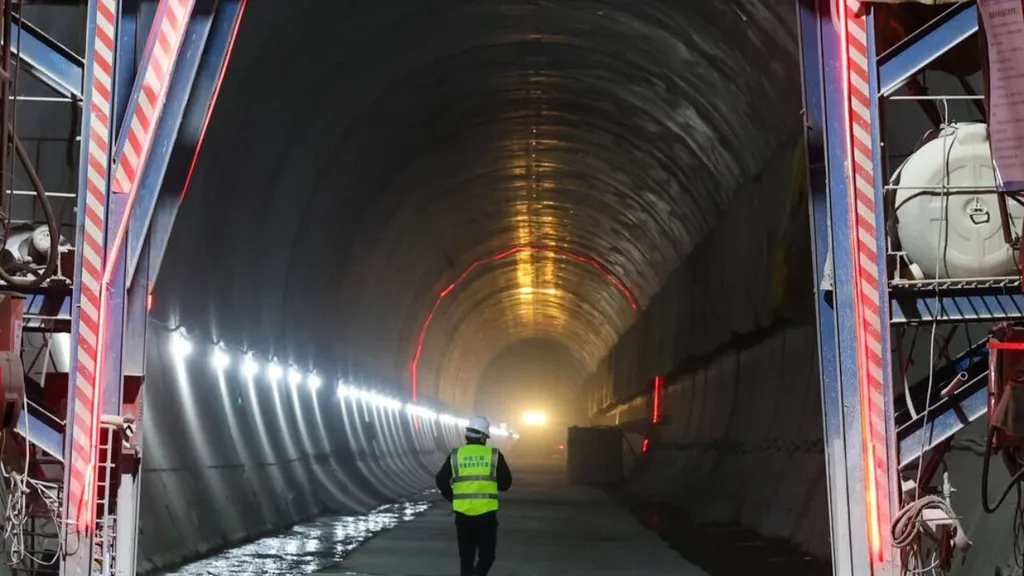In the heart of China’s mountainous terrain, a revolutionary tunneling technology is making waves, promising to reshape the way we build infrastructure while keeping the environment and construction crews safe. Xianjie Weng, a researcher from Jiangxi Provincial Communications Investment Group Co., Ltd., has been at the forefront of this innovation, studying the zero-excavation tunneling technology and its potential to transform mountain road construction.
Traditionally, building tunnels through mountains involves slope-cutting, a method that often leads to ecological damage and safety hazards. “The traditional slope-cutting method introduces higher risks of collapse and instability due to the formation of high slopes,” Weng explains. His research, published in the journal *Advances in Civil Engineering* (translated from the original Chinese title), delves into the mechanical mechanisms of zero-excavation tunneling, offering a safer, greener alternative.
Weng’s study focuses on a tunnel project from the Sui–Da Expressway, where he established a three-dimensional finite element model using the Abaqus numerical simulation platform. By employing the strength reduction method, he comprehensively evaluated the applicability of zero-excavation tunneling technology for mountain tunnels. The results are promising: compared to traditional methods, zero-excavation tunneling significantly enhances construction safety, reduces ecological damage, and offers economic benefits.
One of the key findings of Weng’s research is the influence of different portal arch positions on construction safety. “The zero-excavation (0 meter) scheme achieves optimal performance in terms of both construction safety and cost-effectiveness,” Weng notes. This means that eliminating excavation not only makes the process safer but also more economical, a win-win for both the environment and the construction industry.
The implications of this research are far-reaching, particularly for the energy sector. As the demand for renewable energy grows, so does the need for infrastructure to support it. Mountainous regions, often rich in renewable resources, could see a boom in construction projects. With zero-excavation tunneling technology, these projects can proceed with minimal environmental impact and maximum safety.
Weng’s work provides theoretical support and technical guidance for the promotion and application of zero-excavation tunneling technology in mountain tunnels. As the construction industry continues to evolve, this technology could become a standard practice, shaping the future of infrastructure development in mountainous regions.
In the words of Weng, “This research serves as a valuable reference for the design of construction schemes in similar projects.” With its potential to revolutionize the industry, zero-excavation tunneling technology is not just a breakthrough; it’s a beacon of hope for a safer, greener future.

